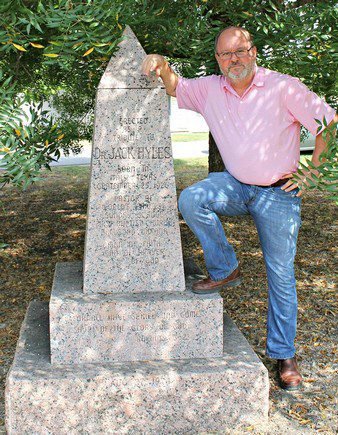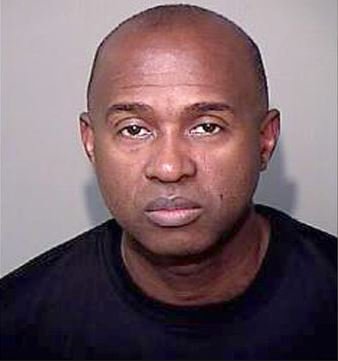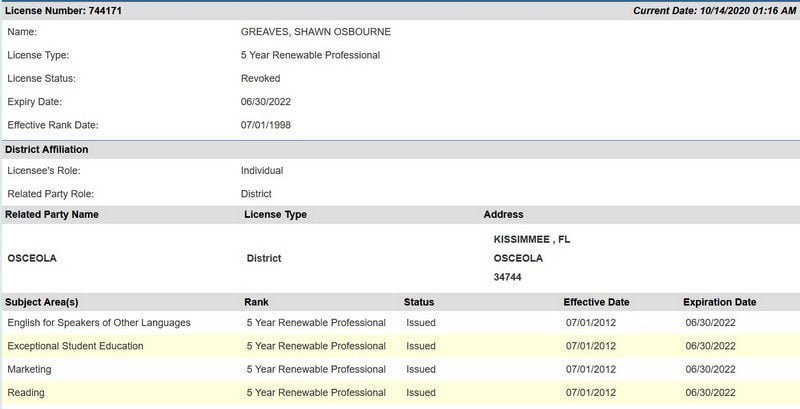
ObstacleChick asked:
Bruce, what was it about being a preacher, from your childhood eyes, that made you tell your mom you wanted to be one when you grew up? Do you remember?
Given your Type A all-in personality, I have no doubt that you would have driven yourself into the ground no matter what career you chose. If you had been a business owner, you’d have worn 50 hats and fired everyone for not doing their job right. If you’d been a social worker you would have worked 15 hours a day attempting to save all your cases. If you’d been a teacher, you would have been at the school long after everyone else helping students. You are who you are, regardless of whether you thought a deity was holding a whip over you. You even said in a recent post that you get involved in work and come up for air 9 hours later not knowing what time it is. It’s just Bruce being Bruce.
What an excellent question. I don’t think I have ever written about this before, so I appreciate the opportunity to do so.
Readers may or may not know — since I have not written about it yet — that I had my DNA tested earlier this year. For more reasons than I want to mention here, I have had doubts about who my father was for many, many years. My dad was 100% Hungarian. Both my brother and sister are dark-skinned, especially my brother. Both of them have Hungarian facial features. Me? I am light-skinned, blue-eyed, with flaming red hair. I was what you would call the milkman’s son.
For many years, I believed my mom’s first cousin was my biological father. He was a redhead and very close to my mother. However, my DNA test results revealed that I actually have a half-brother with the last name of Edwards — who lives 3 hours from my home. His father was a truck driver, a womanizer. He regularly drove a route from Chicago to Bryan, Ohio. My mom, at the time, worked at the Hub Truck Stop in Bryan as a waitress. She was seventeen. It is likely she met my biological father there. Unanswered is whether Mom, Dad, or my biological father knew about the pregnancy. My mom was six-weeks pregnant when she and my dad drove to Angola, Indiana to be married by the justice of the peace. A woman, at the time, had to be 21 to marry in Ohio. In Indiana, a woman could marry at age 18 without parental consent.
My mother was an outspoken, opinionated, well-read woman. She was temperamental, and battled mental health problems her entire adult life. Being sexually molested as a child by your father and raped as an adult by your vile brother-in-law will do that to a woman, not to mention being married to a man who had little capacity for human emotions. I don’t ever remember a time when my dad said to me, “son, I love you.”
There’s no question that I am Barbara Tieken Gerencser’s son. Temperamentally. Emotionally. Passionate about books. A love for writing. When I look at my life, I see Mom. (Please see Barbara.)
My mother taught me to read before I entered Kindergarten. I was a voracious reader, quickly advancing to books years beyond my grade level. I passed that gene on to my children and older grandchildren. Mom told me of a humorous incident that happened in our backyard on Columbine Street in San Diego, California. I was five or six. One day, I had gathered some of the neighbor kids together so I could “preach” to them. There I was preaching away to a captive audience. The hilarious part of this is this: I wasn’t preaching from the Bible. Instead, I was preaching about the evils of the United Nations, complete with reading from a book that likely had come from the John Birch Society. The book could have been None Dare Call It Treason (1964) by conspiracy theorist and Baptist pastor John Stormer. My parents were members of the John Birch Society, so Bircher books and pamphlets were quite common in our home. I remember seeing one pamphlet, Why Martin Luther King is a Communist, lying on the kitchen table. Mom campaigned for Barry Goldwater in California and would work for George Wallace’s Ohio campaign twice.

One day, I came home from first grade with a note from my teacher attached to a book I had taken to school to “show” my classmates. The book had numerous graphic photos of supposed atrocities in communist countries. My teacher asked that I not bring the book to school again. Such was life for an outgoing, talkative, smart-ass boy growing up in an Independent Fundamentalist Baptist (IFB) home — we attended Scott Memorial Baptist Church, pastored by Tim LaHaye, of Left Behind fame.
What, exactly, caused me to say that I wanted to be a preacher is unknown. My personality was such that I was likely drawn to people who were authority figures, in charge. ObstacleChick succinctly sums up my personality traits — a Type-A workaholic. Most of my work career was in jobs where I was either a pastor, manager, or worked by myself. Most people who knew me well would describe me as passionate and driven. My primary care doctor says that part of the reason I have some of the health problems I do — especially chronic insomnia, dating back 30 years — is that I don’t have an off switch. I don’t know when to say stop or say quit. So my doctor tries to medicinally slow me down, but I can tell you this much: I am able to “fight” the medications when I am so inclined. Most people taking the drugs I take would likely be out for two days. Damn squirrels running on the wheel of my mind. Such has been my life.
I genuinely like being a leader, being in charge, making decisions. I have no problem with making snap decisions. Sometimes, I fuck up, but that’s never stopped me from making the next decision. As ObstacleChick mentioned, employers loved my work ethic, my willingness to work 16-hour days to “git ‘er done.” I don’t recommend anyone doing as I did — though several of my children seem to be following in my footsteps.
While I like to think that I have changed over the years, I wonder if the change I see is forced on me by the realities of chronic illness and unrelenting pain. I suspect if I were free of pain and relatively healthy, that I would still be working my ass off 12-16 hours a day. You reach a point in your life where you realize, “this is who I am.” I have a lot of redeeming qualities, and a few traits that drive people nuts. Polly and I have been married for forty-two years. We have learned to tolerate or ignore those traits that irritate us. Our love for each other transcends the things we don’t like about each other. For us, it works.
My path to the pulpit was paved by my mother, my pastors, and personal ambition. I always wanted to be a preacher. I never went through the angst many people go through when trying to figure out what they want to do with their lives. I always knew I wanted to be a preacher. It should surprise no one who really knew me that I attended an IFB Bible college, married a preacher’s daughter, and pastored Evangelical churches for twenty-five years. Nor should it surprise anyone that I was restless, that I had a wanderlust spirit. Long-term pastorates, short-term pastorates, always looking for the next opportunity to win souls for Jesus.
Some of my critics (and friends, such as my counselor) suggest that I am still a preacher, that I have just changed sides. This accusation used to bother me, but I have come to realize that I will always be an outspoken, passionate, opinionated man. I have embraced my new calling, “church,” and “ministry.” Why shouldn’t I passionately work to help people who have doubts about Christianity or who have left the faith? While I will receive no reward in Heaven (or Hell) for my work, it is enough for me to know that I have in some small way made a difference in the lives of countless people. Isn’t that all any of us can hope for?
I hope I have adequately answered ObstacleChick’s questions.
Bruce Gerencser, 68, lives in rural Northwest Ohio with his wife of 47 years. He and his wife have six grown children and sixteen grandchildren. Bruce pastored Evangelical churches for twenty-five years in Ohio, Texas, and Michigan. Bruce left the ministry in 2005, and in 2008 he left Christianity. Bruce is now a humanist and an atheist.
Your comments are welcome and appreciated. All first-time comments are moderated. Please read the commenting rules before commenting.
You can email Bruce via the Contact Form.













